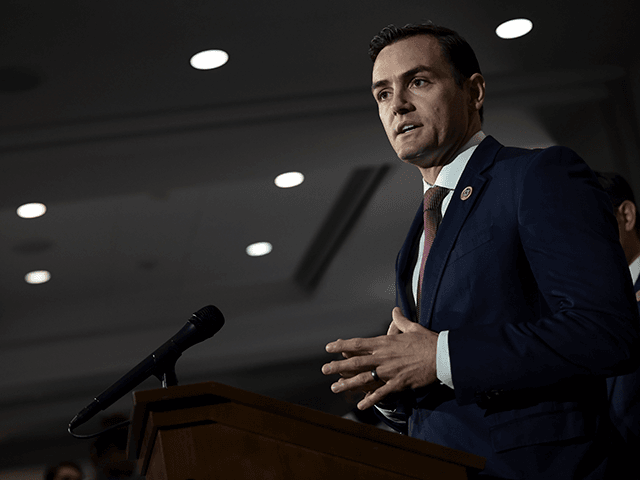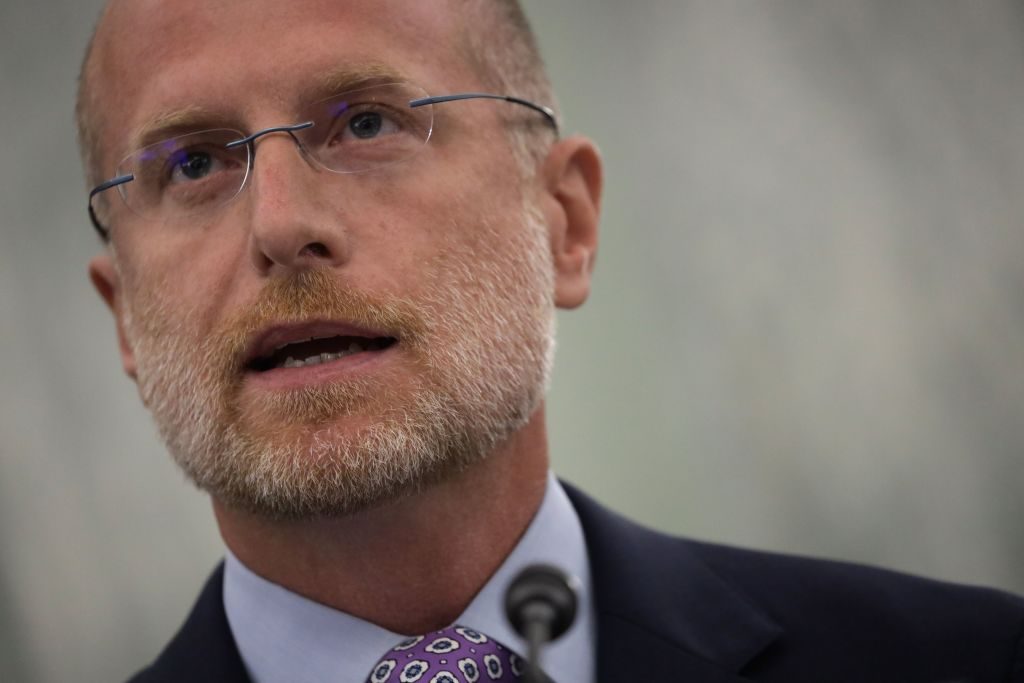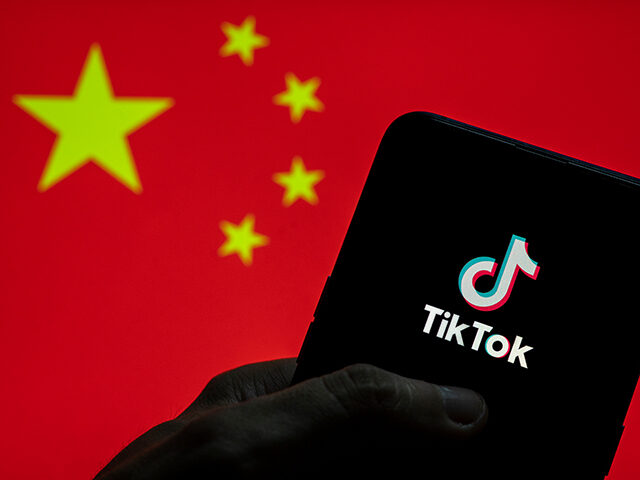China’s state-run Global Times on Monday took great exception to the new chairman of the House Select Committee on China, Rep. Mike Gallagher (R-WI), describing the controversial Chinese-owned social media platform TikTok as “digital fentanyl.”
According to the Global Times, the U.S. has no business criticizing anybody else’s digital drugs because it has decriminalized marijuana.
The Global Times put very little effort into expounding on this silly comparison because its real purpose was to howl in indignation that anyone would dare accuse China of using its Communist Party-controlled companies to harvest information from foreigners, spread propaganda, and wage psychological warfare against users:
TikTok is remarkably popular among young people. Its Chinese version Douyin is also widely used among Chinese young people. But the app is never being politicized as much as it has been in Washington.
Gallagher called TikTok “digital fentanyl,” aiming to stir up trouble and hype the “China threat” theory. Zhang Tengjun, deputy director of the Department for Asia-Pacific Studies at the China Institute of International Studies, told the Global Times that Gallagher is trying to embed his own deep-seated anti-China thoughts into the minds of the American public – on the one hand, it can squeeze TikTok out of the US market and achieve de-sinicization of domestic products and services; on the other hand, Gallagher is paving way for his future political career.
“Now in the US, anti-China is a useful and convenient card to play. Politicians like Gallagher are demonizing TikTok’s influence in US society but at the same time exploit this influence to create opinion chaos,” said Zhang.
The Global Times went on to assail Gallagher as a “radical China hawk,” Republicans for looking to score cheap political points off poor innocent China, and America in general because it tends to “attribute domestic political gridlocks to external factors rather than reflecting on its own problems.”

Rep. Mike Gallagher (R-WI) speaks to reporters after a House Republican Caucus meeting at the U.S. Capitol on September 21, 2021, in Washington, DC. (Photo by Anna Moneymaker/Getty Images)
The Chinese Communist paper sought to deflect criticism of Beijing for allowing — some would say encouraging — the non-digital variety of fentanyl to flood across the wide-open southern border of the United States and kill Americans in shocking numbers.
“While the US fails to address the abuse of fentanyl, it groundlessly accused China of being the main source of fentanyl-like substances in the US. With drug overdose deaths in the US topping 100,000 annually, the US is pursuing cannabis decriminalization,” the Global Times seethed.
Contrary to the dissembling of Chinese editorialists, there are very real and serious concerns about both the data security threat posed by TikTok and the effect it has on young users.
Just to take some headlines from the past month: The directors of both the CIA and FBI concur that TikTok poses a threat to national security. TikTok’s parent company ByteDance admitted that its employees accessed confidential data on American journalists. A study conducted by the Center for Countering Digital Hate found new users are exposed to toxic material pushed by TikTok’s algorithms within minutes of signing up.
“The fundamental problem is this: TikTok is owned by ByteDance, and ByteDance is effectively controlled by the Chinese Communist Party,” Rep. Gallagher noted on CNN’s State of the Union two weeks ago after the Senate voted unanimously to ban TikTok’s app from government smartphones.
“The question we have to ask is whether we want to give the CCP [Chinese Communist Party] the ability to track our location, track what websites we visit, even when we’re not using the TikTok app itself. And, increasingly, since a large percentage of Americans use TikTok to get their news, whether we want them to have the ability to selectively edit that news,” Gallagher said.

Commissioner of Federal Communications Commission Brendan Carr testifies during an oversight hearing to examine the FCC on June 24, 2020, in Washington, DC. (Photo by ALEX WONG/POOL/AFP via Getty Images)
FCC Commissioner Brendan Carr on Monday said India set an “incredibly important precedent” by banning TikTok in 2020, hinting that the U.S. federal government might soon follow suit.
“For those who argue that there is no way to ban an app, India is an example of a country that has done it and done it successfully,” Carr told the Economic Times of India.
“If you look at the history of TikTok’s malign data flows and its misleading representations, I don’t see a path forward for anything other than a blanket ban working,” Carr said.
Carr coined the phrase “digital fentanyl” to describe TikTok in November when he said banning it would be a “basic IQ test” for the Biden administration.
TikTok is indeed popular as the Global Times asserted. It is growing rapidly as a source of digital revenue, even as old titans like Google and Facebook fade.
On Tuesday, TikTok announced some new measures to protect young users from “borderline” or “sexually suggestive” content — although some of the most alarming content boosted by the platform is not sexual in nature, including Chinese Communist propaganda and bizarre fads that have killed a number of children.

COMMENTS
Please let us know if you're having issues with commenting.